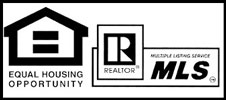Move In/Move Out
Move In/Move Out
One of the most common questions we receive upon with move-out notification is, “How can I maximize my security deposit refund?” It is important to be mindful of how you treat your home from day one, as it is much easier to stay on top of resident-responsible repairs from day one than to remedy damages after the fact. We have compiled a list of the most common resident-responsible damages we experience, so that you may make efforts from day one to avoid charges being deducted from your security deposit upon move-out.
During the Move-In and Move-Out Process
Damages often occur during the move-in and move-out process when trying to move oversized furniture in and out of the home. Put cardboard or a mat under heavy items before setting them down or dragging them to preserve the flooring. Always be aware of the path your furniture will need to travel upon move-in and move-out, protecting the common areas of the property, in addition to unit doors, door frames, walls, and light fixtures.
Pet Damage
Includes: pet odor, urine, scratches, waste left behind, yard damage, etc.
How to Prevent: It is expected that all pets allowed in your unit are house trained, but, if an accident does happen, it should be promptly cleaned using an enzyme formula cleaner, to be followed by a professional cleaning treatment as quickly as possible. For carpeted units, a home spot cleaner is a good item to have on hand to use, followed by professional treatment. Cleaning urine out of carpet using only an absorbent towel and detergent is NOT an effective manner, as urine can quickly permeate the pad under the carpet, leaving odors in your home that you may become immune to or will become apparent upon preparing the home for the following resident. Cleaning up accidents on hardwood or laminate promptly is also important! Although these materials may not seem absorbent, they still soak up liquid and harbor bacteria. When looking for a home-based cleaner, look for those that use hydrogen peroxide or other urine-neutralizing ingredients and always test on a small inconspicuous section first.
Floor Damage
Includes: scratches, discoloration, warping, dings, cuts, gouges, rubberized rugs, stains, frays, rips, compaction, etc.
How to Prevent: Hardwood – Do not wet mop, keep pets nails trimmed, keep an eye on rugs that may stick to floors or discolor them, and be careful of cleaning rugs with cleaners without putting something under them to act as a barrier to the floor. Linoleum/Vinyl – Rubberized rugs can also discolor linoleum, as can rubberized feet and wheels. Avoid scraping sharp objects on floors as they can cut through flooring material. Carpet – Tend to spills quickly; foaming cleaners work well to lift stains out of the fibers. Vacuum frequently, ensuring that you are using a vacuum with a “beater brush” to avoid carpet compaction and premature foot-traffic patterns, as carpet compaction due to failure to vacuum regularly is considered resident-responsible damage. Have carpets cleaned using either a professional service or professional style machine, making sure that you are following the manufacturer’s instructions.
Wall Damage
Includes: excessive wear or dings/scuffs/marks, excessive holes, unauthorized or poor paint job, etc.
How to Prevent: Candles, diffusers, and inhaled substances leave a film on wall surfaces, which is considered damage and can require a full paint job to remedy at resident expense. Keep furniture away from walls to avoid wear, color transfer, and dings. Avoid touching or rubbing against walls, as this causes discoloration and staining. If you notice scuffs or marks, most can be removed with a magic eraser if you address them soon after occurrence. Refrain from hanging an excessive number of items, and always measure before hanging to avoid creating holes in the wrong places and having to redo. Using hanging strips wherever possible is also a great way to avoid wall damage. Generally, if wall holes are smaller than the average size nail hole and there are not more than five holes per room, they will be considered normal wear and tear and you will not be charged. Holes greater in size, or more numerous frequency, will be considered resident-responsibility for repair at move-out.
Damage to Trim, Baseboards, & Doors
Includes: marks, scratches, warping, bubbling, water staining, etc.
How to Prevent: Damages to trim, baseboards, window sills, and door frames, other than very minor scuffing or marking that can be cleaned with a magic eraser, is considered resident-responsible damage. Care should be taken to ensure furniture is not placed directly against baseboards and that items are not rubbing or wearing on painted wood surfaces. Over-the-door racks and hooks often discolor or chip paint on the door or door frame, which is NOT considered normal wear and tear. Charges to repaint these areas due to wear is assessed to the resident.
Appliance Damage
Includes: heavy burnt on food or grease, scratched surfaces, broken glass-tops, broken refrigerator shelving, etc.
How to Prevent: Do NOT use any type of abrasive cleaner or sponges on painted, stainless steel, or glass surfaces. Simple Green is a great cleaner to use to clean dirt and grease residue from kitchen surfaces if utilized regularly, prior to buildup. Keep pots and pans in a static position when cooking, stirring food items rather than dragging/scraping/shifting pots and pans across the surface of the stove. Be cautious when using magnets directly on stainless steel as they will scratch the surface. Do not overload fridge shelves. Leave closet/laundry room doors open when running your dryer, and be sure to WASH your lint trap with soap and water regularly if you use dryer sheets, as the wax buildup can cause your dryer to overheat. Do not overload dishwashers or washers/dryers. Clean or replace HVAC filters at LEAST once every 90 days.
Hardware Damage
Includes: broken, missing, or dislodged towel bars, shower rods, TP holders, door hinges, door stops, cabinet and drawer handles, light switch/outlet covers, light bulbs, etc.
How to Prevent: Use all hardware for its intended purpose. Do not overload shower rods, towel bars, drawers, or built-in shelves. Be gentle with cabinet doors and drawers.
Cabinets
Includes: heavy grease build-up, staining or scratches on interior or exterior of cabinet doors, drawers, and shelves, etc.
How to Prevent: Keep items that could leak inside baskets or trays and contain sharp objects in covers to prevent scratching. Wipe out drawers and cabinets regularly, emptying out drawers and using a vacuum hose to clean up dirt and debris. Trying to clean out drawers and cabinets that have never been cleaned can be a very time consuming task, which may result in a bill for excessive cleaning at the turn of your unit. Use a magic eraser or good grease-fighting cleaner for cabinet and drawer exteriors, particularly in the kitchen around the stove.
Unreported Leaks
Includes: unreported water damage on ceilings, walls, windows, under sinks, etc.
How to Prevent: Assess these areas regularly and submit a service request upon discovery.
Odors
Includes: cooking, pet, smoke, etc.
How to Prevent: Follow all rules and policies in your lease regarding smoking, vapors, and pets. Utilize fans while cooking. If food burns, ventilate your unit properly. Follow good housekeeping rules and tidy spills, stains, and messes thoroughly with cleaners and then ventilate.
Yard (if tenant-responsible)
Includes: not maintained, flowerbeds not weeded or edged, weeds in lawn, bushes not trimmed, missing or dead plants, general poor condition in comparison to “before” images (with season taken into consideration), etc.
How to Prevent: Mow lawn bi-weekly at a minimum, ensure proper watering schedule (even in the case of professional landscapers), communicate with management if plant material is failing to thrive, keep yard and beds free of weeds, and generally tidy up routinely.
Items Left Behind
Includes: trash left at curb after move out and any items left behind no matter how minimal (trash, shower liner and rings, front door mats, cleaning supplies, items considered “improvements” but not previously approved by owner/agent), etc.
How to Prevent: NO items are to be left that did not come with the unit unless expressly approved by management ahead of time. Any items left not meeting criteria will be removed at the resident’s expense.
Smoke/Carbon Monoxide Detectors
Missing or damages detectors and detectors found without batteries WILL result in a $250 fine per unit!
Good Housekeeping Generally
Take pride in your home, and maintain it regularly! Follow cleaning tips herein and, in addition to regular cleaning, perform a good “deep cleaning” seasonally. Always test cleaners on a small area before applying to home surfaces, and try to use cleaners that are as gentle as possible to get the job done.
While this list is not all-inclusive, ensuring that you take these items into consideration at the beginning of your residency will help ensure your home stays in tip-top condition throughout. If you should need to report a maintenance concern, please submit a request through your tenant portal or call our office at 419-589-7368 to speak to our maintenance coordinator personally.


